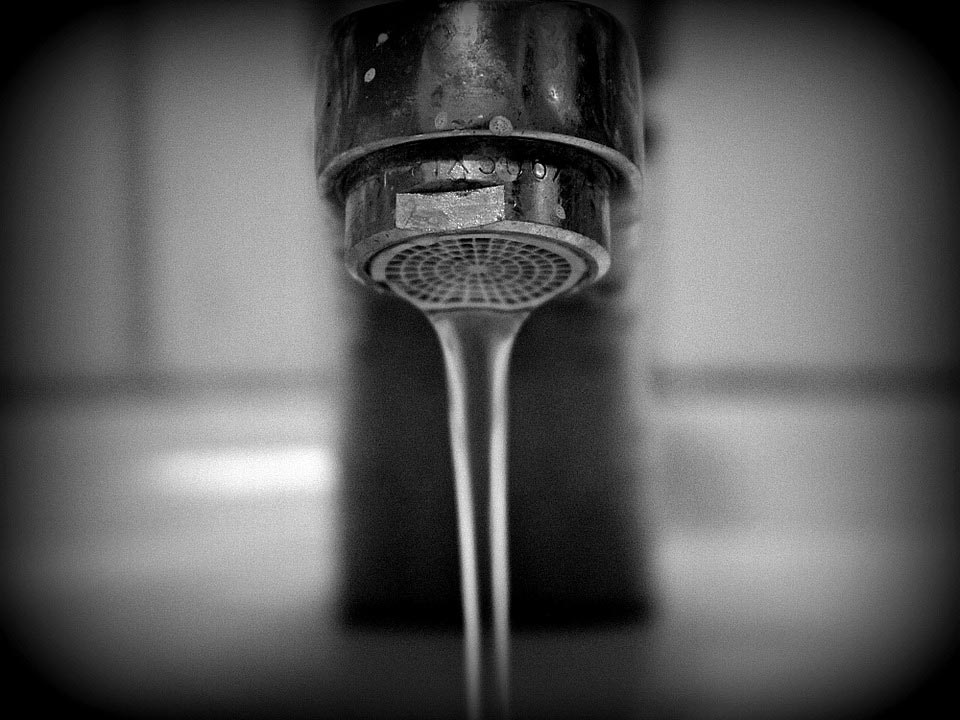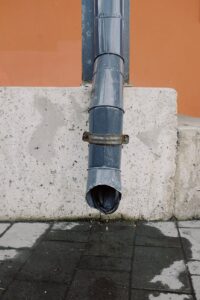10 Most Common Plumbing Emergencies
As with any mechanic, certain things go wrong in the plumbing system. There are times when you can fix them yourself and other times when it may be best to call a professional for help.
The following are some of the most frequent plumbing difficulties. You should become aware of these circumstances so that you can respond when they do occur.
1. Leaky Faucets
How it happens: When the faucet’s handle seems to be dripping or leaking, it’s usually because of a small crack in the rubber washer. These can always be replaced and easily fixed at home.
What you can do: Turn off the water supply to the faucet and replace the washer.

Prevention: This is very easy to do. Just tighten up that handle!
What can happen if not fixed: If left unattended, a leaky faucet could cause damage in your kitchen or bathroom, including rust stains on counters and even mould.
2. Leaking Toilet/Leaky Roof
How it happens: The most common reason for a leaking toilet is a faulty flapper valve. Other reasons could be worn-out parts or a crack in the tank, but these are less common and will probably require professional help to fix. This problem almost always occurs at the base of the toilet.
What you can do: Turn off the water supply to the toilet and replace the flapper valve or other parts as needed.
Prevention: Keep your toilet correctly maintained by checking for leaks every three months by adding a few drops of food colouring into the tank. If there is no colour in the bowl within 30 minutes, everything is alright.
What can happen if not fixed: This is one of those problems that, the later you leave it, the more expensive. If left unattended, a leaking toilet will cause water damage to your floor and create mould and other severe damage such as warping of floors and ceilings.
3. Drain Clog/Blocked Drains

How it happens: The most common drain clog occurs when hair or other debris wraps around small objects like baby toys, toothbrushes, and combs. These make for easy nests which clog up the drain. Other causes could be grease buildup (from cooking) or even excess toilet paper.
What you can do: If your draining is not working, you will need to use a chemical drain cleaning agent or a plunger/plumber’s snake.
Prevention: Check your drains regularly to remove any hair that may be caught in them using wire hangers. Try not to allow soap suds into the sink by avoiding overloading the garbage disposal with too much food at once. Also, always keep food particles out of the drain.
What can happen if not fixed: This is a problem which will become worse if it is ignored and can cause significant damage such as clogging up drains to the point where they cannot be opened (and you need a 24-hour emergency plumber to open them or even dismantle them), or even sewage backups into your home when the blockage is bad enough.
4. Leaking Pipes
How it happens: If there are any leaks in your pipes, this could mean problems with worn-out parts and fungal growth (which degrades the pipe). Worn-out parts may include valves, washers, and gaskets; fungi need only moisture and warmth to grow and spread, but the wet environment in the pipes makes it easy.
What you can do: You should be able to replace or fix the broken washer/gasket and clean off any fungal growth. If it is a significant problem, you may need to call a professional plumber.
Prevention: Check for leaks regularly and use only cold water when using your washing machine, dishwasher, or kitchen appliances such as sinks and dishwashers with drain hoses. Do not let your faucets drip and repair any minor cracks in your water system as soon as possible.
What can happen if not fixed: A bad leak will cause damage anywhere from stained ceilings to mould growths, even flooding after a pipe burst.
5. Broken Pipes
How it happens: There are several reasons why your pipes could break. The most common is due to the age of the pipe, which usually occurs below ground level and is not visible. Other reasons include freezing water (which expands when frozen) or sudden changes in temperature (because of faulty insulation), the excess strain on the system, bad installation, wrong kind of piping material used during installation, chemical contamination through leakage from nearby industries, etc.
What you can do: As with any other emergencies, call a professional plumber as soon as possible. Turn off your main valve first before attempting to repair yourself or enlist help from somebody else. If it is visible above ground, you may be able to fix it on your own – but first, check for leaks by applying food colouring onto your pipe joints.
Prevention: Inspect your pipes regularly so you know what to look for if ever there is a problem. If you can see areas where your pipes are prone to freezing, then insulate these areas well. Using the wrong type of piping material during installation may require replacement or repairing before it can cause any problems. You should also store flammable materials far away from possible sources of ignition (such as leaking gas), and always switch off your main valve before leaving your house for an extended period or making any repairs on your plumbing system.
What can happen if not fixed: Nothing will happen until it breaks completely; but when this occurs, flooding will result (which means loss of expensive property) and sewage backup (which means potential health risk).
6. Leaky Roof
How it happens: Usually, a leaky roof is due to worn-out caulking around the edges of skylights and vent pipes. Other reasons include a damaged or missing shingle, a crack in a skylight which you did not know about because it was hidden by an overhang or major damage from tree branches during a storm. All these problems can cause leaks inside your home.
What you can do: Repair any minor cracks using silicone caulk for best results, add more nail holes into the flashing if needed to fix any gaps between windows and roofing materials, or add another layer of shingles where needed – just make sure that there are no other possible sources of leakage before you do the repairs.
Prevention: Inspect your roofs regularly so you can notice any changes in their structure, look for cracks in skylights, inspect flashing around this area and try to find out when was the last time you inspected them (if ever). You should also install gutter guards to prevent dirt, leaves, and debris from blocking drain pipes leading up to your roof.
What can happen if not fixed: A small leak will only cause a minor problem before it is repaired; but a major one could damage walls and ceilings inside your house, leading to mould growth or rot which could affect the structure of your home. Emergency plumbing solutions can get you back on your feet, but it’s far cheaper to be proactive before resorting to an urgent callout.
7. Broken Water Heater
How it happens: It may be due to misuse or major damage that occurs because of the sudden change in temperature (like exposing it to freezing temperatures when it’s hot inside your home). Other causes include leaking joints, faulty installation, or the use of improper materials during construction (faulty insulation, for example). If you do not check your water heater regularly to see if there are any leaks, this will increase the risk of an explosion.
What you can do: Make sure that there is no leak by applying food colouring onto your water heater and looking for coloured water coming out of it. Turn off the power supply first before attempting any repairs yourself or enlisting help from somebody else.
Prevention: Regularly inspect your water heater so you can spot any problems early on; examine areas around the tank carefully during every inspection too. Always turn off the power supply before you attempt any repairs or inspections.
What can happen if not fixed: A small leak will only cause a minor problem before it is repaired; but a major one could damage walls and ceilings inside your house, leading to mould growth or rot which could affect the structure of your home.
8. Broken Air Conditioning Unit
How it happens: Many reasons may trigger it – including being hit by falling debris during high winds, freezing because it was exposed to extremely cold conditions outside (especially when its power cord is not plugged in), and heavy snow accumulation on top of the unit that causes it to collapse upon itself.
What you can do: If possible, bring your AC indoors immediately so you can prevent further damage to any part of the unit.
Prevention: Make sure that your AC is safe to use by inspecting it regularly; if you see any signs of damage, do not attempt to repair it yourself and contact a professional instead (even if they can be expensive).
What can happen if not fixed: A broken AC will only cause discomfort inside your home; but repair costs may skyrocket depending on how serious the problem is, rendering this investment useless or practically unusable without proper repairs.
9. Faulty Electrical Wiring
How it happens: This typically occurs when wiring insulation starts to wear out – usually near wall sockets and receptacles where they are constantly bent at sharp angles as you plug appliances in and remove them again. Other reasons include faulty installation, aging materials, exposure to moist or wet conditions and even rodents chewing on the wires (rats and mice love chewing on them).
What you can do: Identify your home’s electrical wiring and associated components (wall socket outlets, switches, circuit breakers etc.) by checking voltage levels with a voltmeter. You can purchase these at appliance stores or RadioShack for around $15 – but make sure if you’re not an electrician that you know how to use it properly.
Prevention: If you notice any problems like loose connections or defective insulation, turn off the power supply before making any repairs yourself or enlist help from somebody else. It is best to let a professional handle this job anyway because they have all the right equipment.
What can happen if not fixed: A faulty electrical wiring system can lead to fires inside your home due to overloading or short-circuiting, which could cause injury to you and other people in your household. It may even damage appliances or other electronic equipment that you plug into it, so be wary of using them until your wiring is appropriately repaired.
10. Leaking Water Pipes
How it happens: These are usually caused by corrosion (from iron alloy pipes) or defective materials (like PVC piping), but this typically occurs gradually over time as the metal rusts away under certain conditions – like exposure to water or humidity for extended periods, salt deposits forming on the outside of the pipe that corrode metal fast, hard water that has high mineral content, settling of the house over time which causes uneven stress on water lines due to shifting soil below it.
What you can do: Identify the source of the leaks by checking all your homes’ piping for corrosion or pitting underneath where they are located, especially at joints or junctions where multiple pipes meet together. Otherwise, call for plumbing burst pipe repair.
Prevention: Replace old piping with newer materials that are more resistant to corrosion and other types of damage – this may require consulting a professional depending on whether you have done any plumbing repairs before.
What can happen if not fixed: Leaking water pipes may start small, but just like with burst pipes in normal circumstances, their problems will only worsen over time – leading to mould growth around them (which could affect your health), damage to your home’s foundation or ceilings underneath them, higher water bills because you are constantly using more water than usual and worst of all, possible flooding inside your house whenever it rains.
If you have experienced problems with any appliances in your home, don’t attempt to fix them yourself – contact emergency plumbing services in North Sydney right away for the best results. Skip this step, and that problem will eventually get worse until it becomes something serious that can cost hundreds if not thousands of dollars to repair correctly. Talk about being penny wise but pound foolish! And always remember, prevention is better than cure so learn how to take care of your appliances well enough before you make them part of your daily lives again.
